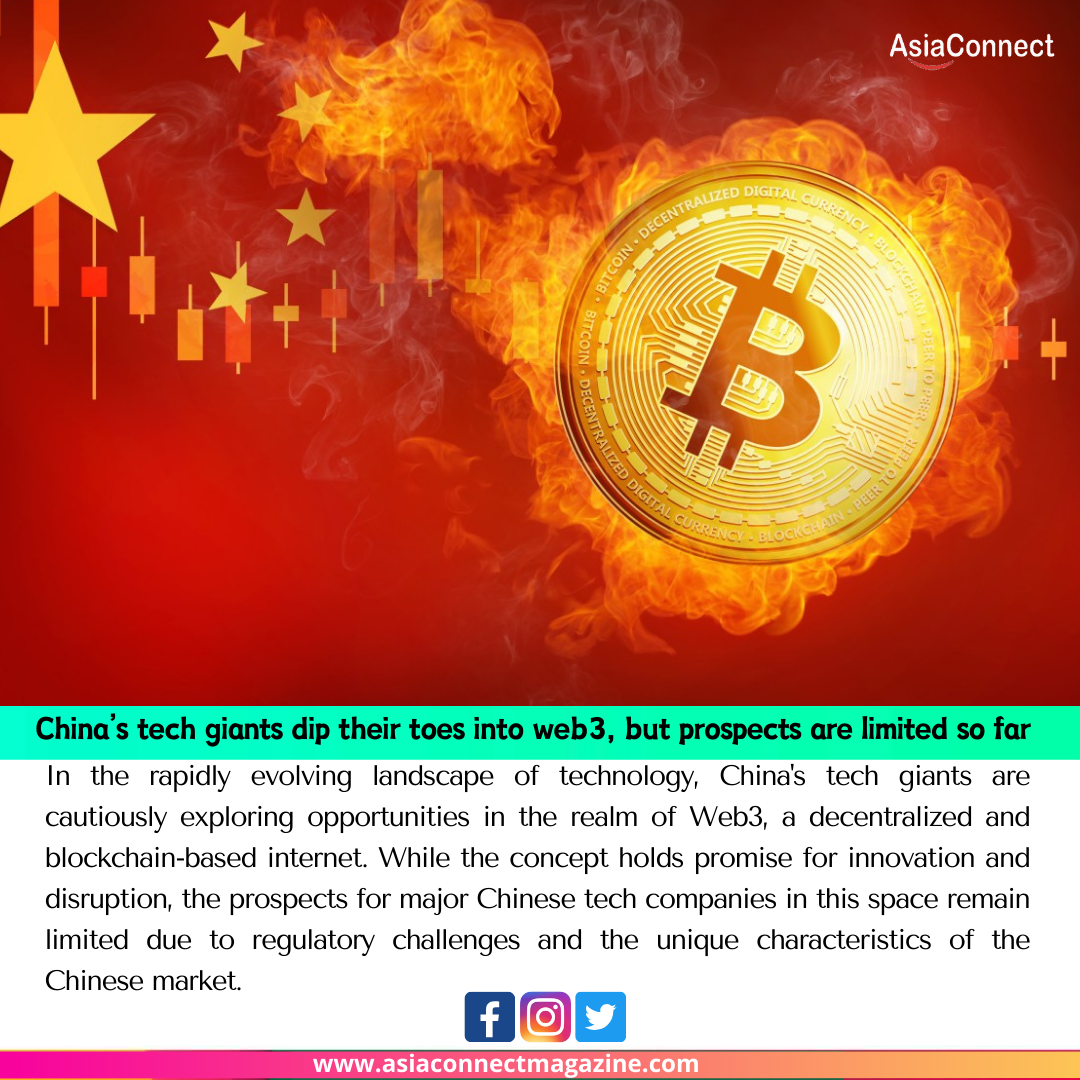In the rapidly evolving landscape of technology, China’s tech giants are cautiously exploring opportunities in the realm of Web3, a decentralized and blockchain-based internet. While the concept holds promise for innovation and disruption, the prospects for major Chinese tech companies in this space remain limited due to regulatory challenges and the unique characteristics of the Chinese market.
Background:
Web3, often referred to as the third era of the internet, envisions a decentralized and user-centric digital ecosystem. It leverages blockchain technology to enable trustless transactions, smart contracts, and decentralized applications (DApps). Recognizing the potential of Web3, global tech companies are increasingly exploring ways to integrate blockchain into their services and products.
Chinese Tech Giants’ Interest:
Major players in China’s tech industry, including Tencent, Alibaba, and Baidu, have shown interest in Web3 technologies. Tencent has been exploring blockchain applications, Alibaba has invested in blockchain startups, and Baidu has initiated blockchain research projects. However, these forays into Web3 are characterized by a cautious approach, primarily due to the regulatory environment in China.
Regulatory Challenges:
China has maintained a strict regulatory stance on cryptocurrencies and blockchain. The government’s concerns about financial stability, fraud, and potential risks associated with decentralized currencies have led to various restrictions, including the banning of initial coin offerings (ICOs) and the closure of cryptocurrency exchanges.
This regulatory environment poses challenges for Chinese tech giants looking to fully embrace Web3 technologies, as the decentralized nature of blockchain conflicts with the centralized control favored by the Chinese government.
Limited Cryptocurrency Development:
While Chinese tech companies are exploring blockchain applications, the development of cryptocurrencies—a key component of many Web3 ecosystems—faces significant hurdles. The People’s Bank of China (PBOC) has actively pursued the development of its own digital currency, the Digital Currency Electronic Payment (DCEP), which is centralized and closely regulated.
This preference for centralized control over financial systems makes it challenging for Chinese tech giants to actively participate in or develop decentralized cryptocurrencies that are integral to many Web3 platforms.
Domestic Market Dynamics:
The unique dynamics of the Chinese market also contribute to the limited prospects for Web3 initiatives. Domestic consumers are deeply embedded in the existing tech ecosystems provided by companies like Tencent and Alibaba. The dominance of these platforms, combined with strict regulatory oversight, makes it difficult for new and decentralized technologies to gain widespread adoption.
Global Competitiveness:
While China’s tech giants face obstacles in the domestic Web3 landscape, there is a broader global competition in the blockchain space. Companies from other regions, unencumbered by the same regulatory challenges, may have more flexibility to explore and invest in decentralized technologies.
Conclusion:
China’s tech giants are cautiously dipping their toes into the waters of Web3, recognizing the potential for innovation but constrained by regulatory challenges and the unique dynamics of the domestic market. While there is genuine interest in exploring blockchain applications, the centralized control favored by the Chinese government and the strict regulatory environment surrounding cryptocurrencies limit the extent to which these companies can actively participate in the global Web3 movement.
The coming years will likely witness a delicate balancing act as Chinese tech giants navigate regulatory landscapes, explore innovative applications of blockchain technology, and assess the evolving global competition in the Web3 space. The extent to which they can overcome these challenges will shape their role in the future of decentralized technologies.





